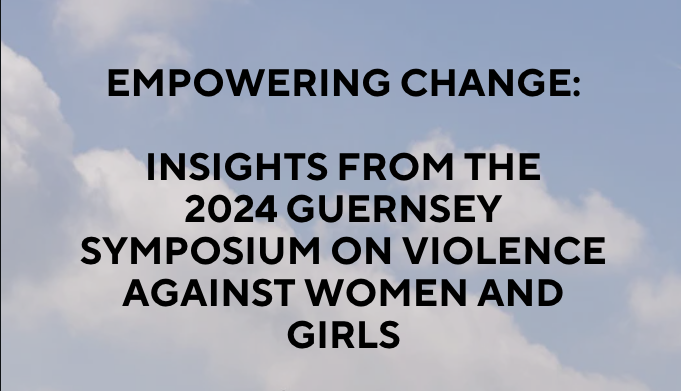


Lighting up dark routes, designing spaces with women in mind and improving citizen data collection of sexual offences have all been cited as ways to combat violence against women and girls in a new report.
Eight speakers addressed public servants and the third sector last month on women’s safety in a first of its kind event that plans to be repeated to foster improvements in understanding and promote action on the topic.
Local work to address violence against women and girls have received wide praise from local deputies over Home Affairs’ domestic abuse and sexual violence work this term, while Guernsey Police have committed to measure progress on gender equality in policing.
But Jersey was noted as taking a more detailed and independent approach, with Guernsey’s Deputy Chief Officer Ian Scholes commenting that their work is a “call to arms” in a full report published by local women’s safety campaigners this week.
Jersey set up a citizen’s assembly bringing together support services, criminal justice, safeguarders, education professionals and the community to research and review services and laws.
Surveys, victim testimony and other insights found 97% had experienced sexual harassment, over half faced unwanted sexual touching and half had received unwanted sexual messages.
A quarter said they had either been raped or attempted to be raped.
Most young females also reported at least one form of sexual violence, with the rates higher for 15- and 16-year-olds.
Testimony also revealed suspicion over sentencing and a lack of willingness to report crimes, while public support services were criticised for dismissing allegations or manipulating processes against people.
The taskforce recommended more data, more training and education, new laws and support services to build trust and prevent violence in the first instance. Progress on all 77 recommendations made will have annual reporting.

Pictured: The full report can be read HERE.
The report also highlights that gender is often unaccounted for in general design from seatbelts to travel patterns which negatively impacts women’s safety.
Public lighting was of particular concern for Guernsey, with numerous bright floodlights at the road creating dark patches and glare which can assist perpetrators.
Susan Leadbetter, Principal Consultant at WSP in London, was also shocked to find a sign directing pedestrians on a diversion through Saumarez Park during a road closure, which she said wasn’t safe. This is pertinent given reports this week of a half-naked man stalking in the bushes of the park.
She noted that not addressing women’s safety fears can have negative economic consequences too through access to employment and leisure and tourism.
Better lighted streets was also the top recommendation for improving women’s safety, according to a YouGov poll.
Comments
Comments on this story express the views of the commentator only, not Bailiwick Publishing. We are unable to guarantee the accuracy of any of those comments.